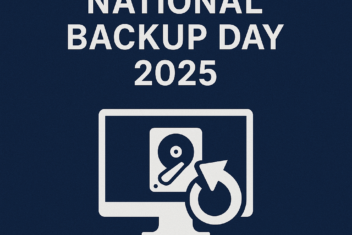Top Cybersecurity Stories: January 20–26, 2025
Russian Hackers Exploit Microsoft Teams to Deploy Ransomware
In a sophisticated campaign, Russian cybercriminals have been impersonating remote IT support staff on Microsoft Teams to infiltrate corporate networks. The attackers initiate their scheme by overwhelming employees with a barrage of spam emails, creating a sense of urgency. Subsequently, they contact the targeted individuals via Microsoft Teams, posing as IT support personnel offering assistance. Once trust is established, the hackers persuade victims to grant remote access to their computers, enabling the deployment of ransomware that encrypts data and demands payment for decryption. Sophos, a UK-based cybersecurity firm, has identified 15 such incidents in the past three months, with a noticeable uptick recently. The groups behind these attacks are linked to Russian criminal organizations known as Fin7 (also referred to as Carbon Spider, Elbrus, and Sangria Tempest) and Storm-1811. This method exploits Microsoft Teams’ default settings, which allow external contacts to communicate with internal staff, highlighting the need for organizations to review and tighten their communication platform configurations to prevent unauthorized access.
PayPal Fined $2 Million for Cybersecurity Failures Leading to Data Breach
Digital payments giant PayPal has been fined $2 million by New York’s Department of Financial Services for cybersecurity deficiencies that led to the exposure of customers’ Social Security numbers in late 2022. The issues stemmed from inadequate staffing and training in key cybersecurity roles, which resulted in sensitive customer data being accessed by cybercriminals for about seven weeks. The problem was identified after PayPal’s cybersecurity team noticed a spike in unauthorized access attempts and discovered that cybercriminals were using “credential stuffing” to access federal tax forms. PayPal did not initially require multifactor authentication or use controls like CAPTCHA to secure accounts. Following the incident, PayPal has now implemented multifactor authentication on all U.S. accounts, forced password resets, and added CAPTCHA to enhance security.
Cyber Diplomacy Funding Halted Amid U.S. Foreign Aid Freeze
In a significant policy shift, the U.S. State Department has announced a broad freeze on foreign aid, resulting in the suspension of funding for cyber diplomacy initiatives. This move halts nearly all existing foreign assistance programs, including those aimed at enhancing international cybersecurity cooperation and capacity building. The freeze raises concerns about the future of global cyber diplomacy efforts, as it may hinder collaborative endeavors to combat cyber threats and promote secure digital infrastructure worldwide. The decision underscores the complex interplay between domestic policy priorities and international cybersecurity commitments, highlighting the need for a balanced approach to maintaining global cyber stability.

Summary
This week’s cybersecurity developments underscore the evolving tactics of cybercriminals and the critical importance of robust cybersecurity measures. The exploitation of communication platforms like Microsoft Teams by Russian hackers highlights the need for organizations to reassess their security configurations and employee training programs. The PayPal data breach and subsequent fine emphasize the consequences of inadequate cybersecurity practices and the necessity for continuous improvement in safeguarding sensitive information. Additionally, the suspension of cyber diplomacy funding amid a broader foreign aid freeze raises concerns about the future of international collaboration in addressing cyber threats, suggesting a potential shift in the U.S. approach to global cybersecurity engagement.
Underreported News: Transformation of Orbik Cybersecurity into a Cooperative
In a pioneering move, Orbik Cybersecurity, a start-up specializing in industrial cybersecurity, has transformed into the first technology cooperative in Euskadi, Spain. This transition, facilitated by a collaboration between Ikerlan and Mondragon, aims to promote the retention and development of technological knowledge within the region. The cooperative model is expected to mobilize over €10 million in the next four years to create new start-ups, fostering innovation and economic growth. Despite its potential implications for regional development and the promotion of cooperative business models in the tech industry, this significant development has not received widespread attention.


